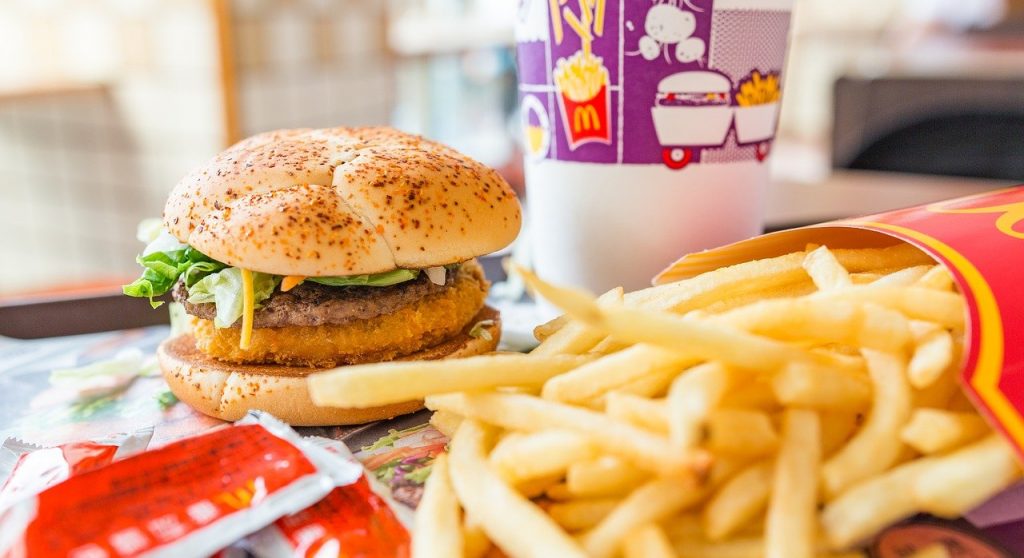An independent review on food policy in England suggests a tax on sugar and salt, and vegetables prescribed by the NHS.
The report was led by businessman Henry Dimbleby, who co-founded the fast food chain Leon. He says money from taxes could aid the provision of free school meals, and go towards supporting better diets among those who are poorest. The review also suggests GPs should prescribe fruit and vegetables to encourage healthy eating.
However, the food industry warn it could have a big impact on increasing food price inflation.

Ian Wright, of the Food and Drink Federation, which represents manufacturers, says there is a link between obesity and poverty. He thinks “we need measures to tackle poverty and to help people to make choices they need to make”.
The government promise a response with a White Paper within six months. It is expected this will include their own proposals for policies on a National Food Strategy.
The review, commissioned in 2019 by the government, says reforms of the food system are a must. It is needed to improve the health of the nation, protect the NHS from additional pressures, and help save the planet.
The coronavirus pandemic was a “painful reality check”, highlighting the scale of bad health related to food. The UK’s high level of obesity played a major role in the high death rate in the country.
Mr Dimbleby says now is the time to “seize the moment to build a better food system for our children and grandchildren”.
A ‘double nudge’
Chief executive of the Behavioural Insights Team, David Halpern, says taxing sugar and salt could act as a “double nudge”.
The move is compared to the sugar levy on soft drinks that was introduced in 2018. This prompted manufacturers to remove sugar from their products, giving them a nudge in the right direction. Therefore, it proved an effective tactic, despite some ministers worrying about it at the time. The levy resulted in a reduction of sugar added into soft drinks by around a third. However it did not have an adverse effect on sales, as they rose.
Poor diet contributes to 64,000 deaths a year in England, costing the economy £74bn. In addition, over half of people aged over 45 now live with diet related health conditions.
But it is not just our health we are damaging with our eating habits, they are also destroying the environment. The global food system is the second biggest contributor to climate change, after the energy industry. About a quarter of greenhouse gas emissions comes as a result of the food we eat. It is the main contributor to loss of biodiversity and wildlife, drought, deforestation and water pollution.
Junk food is at the heart of the problem
The food industry is to blame by creating products that are hard to resist. They exploit our primal appetites for fat, sugar and salt. And these highly processed foods are generally three times cheaper than healthy alternatives. This is driving the problem of food related ill health. The review suggests the best way to deal with it is by introducing a salt and sugar tax.
The review’s proposals would see a significant increase in costs for the two commonly used ingredients of salt and sugar. It recommends a cost of £3/kg for sugar and £6/kg for salt sold wholesale for use in processed foods, restaurants and catering businesses. The hope is that the added expense will deter manufacturers from using too much sugar and salt in their products. It could act as an incentive to reduce levels of those ingredients by changing recipes or reducing portion sizes.
The tax from sugar and salt could raise as much as £3.4bn a year, and could reduce the amount of calories people eat a day by between 15 and 38kcal.
Help for poorer households
The National Food Strategy realises that the salt and sugar tax will raise prices of some products, likely putting additional financial strain on the poorest families. To combat this there are a series of recommendations designed to provide low income households with children with fresh food and ingredients.
Recommendations include using some of the money raised from the new taxes to offer free school meals to more families. It suggests extending the provision from the current household income threshold of £7,400 to £20,000. Many believe the current levels to qualify for free school meals leaves many children from lower income families going hungry.
The review also recommends increasing spending on schemes to improve the diets of low income families and improve food education.
Other recommendations include helping farmers shift to more sustainable methods, and introducing standards for trade agreements to prevent cheap imported goods undercutting the UK. Another initiative sees equal division of land between high intensity farming, low intensity agriculture and nature reserves. The review wants a £1bn investment on research and development to help improve diet, develop sustainable practices, and protect the environment.
The review has a lot of backing, including restaurateur and Great British Bake Off judge Prue Leith, and chef and healthy eating campaigner Jamie Oliver. Prue says, if done right, it will put “our food system on the right path to health and prosperity”. While Jamie agrees that if the government and businesses both take action to prioritise public health “then we have an incredible opportunity to create a much fairer and more sustainable food system for all families”.
Thank you for reading Salt and Sugar Tax and Vegetable Prescriptions, says Food policy Review

Looking for a storage solution for your garden furniture, tools and belongings? Look no further – Garden Sheds at affordable prices.